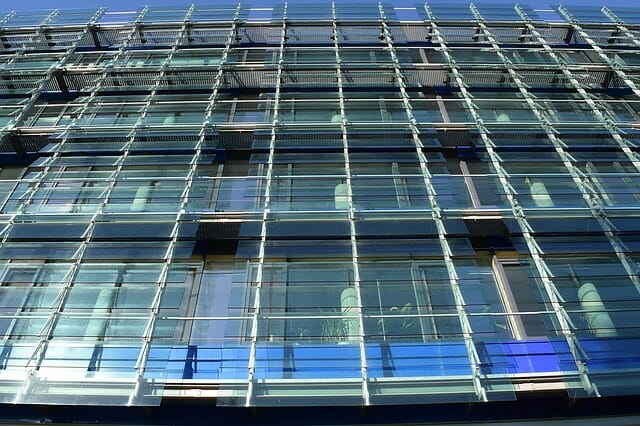While insurance is something no one likes to think about until it’s needed, there’s no substitute for a good policy. You’ll sleep better knowing that you’re covered if a hurricane sweeps through your area or someone flushes a T-bone steak down the toilet, damaging your plumbing system.
That said, most of us don’t know the first thing about our own personal insurance, let alone condo association insurance. That’s why we put together this article with all the info you need on both.
Table of contents
- Overview of condo association insurance
- Types of condo insurance
- Common questions about owner insurance
About condo association insurance
Condo association insurance deals with the general common areas of the building. It makes provision for both property and liability coverage. After closing the sale on your condo unit, you should have received a “certificate of insurance” showing that the policies are in effect and by whom they’re underwritten.
If you don’t have an insurance agent, then you may want to talk to the agent who handles the association’s policies to find out more about the extent of the insurance coverage. That way, if there’s a claim, you won’t face a dispute between agents as to whose policies cover what.
Types of condo insurance

Condo association insurance
Condo association insurance covers a wide range of eventualities. Some of the most common (and important) types of coverage include:
- Fidelity liability: This covers the costs of embezzlement or theft of money from the association by a board member
- Worker’s comp insurance: This is just in case a volunteer gets injured while working on behalf of the association
- Bare walls coverage: As the name implies, this cover is for the basic building structure. This includes walls, floors, roof and elevators
- Single entity coverage: This covers individual unit finishes except for the owner’s personal property. This coverage doesn’t include refurbishments on said finishes. The unit owner is responsible for improvements to countertops, floors or light fixtures within the unit
- General liability insurance: This is one of the most important coverage to include in a condo association policy. That’s because it covers the cost of lawsuits that may happen because of accidents that occur within the building. For instance, someone might slip and fall while doing repairs on the property. The association can also be sued for issues like failure to provide adequate security thus placing owners at risk of burglary or attack
- Director’s and officer’s liability insurance: Did you know that members of the condo board can be sued or held liable for missteps in decision making? It doesn’t seem fair because they’re just volunteering and doing their best for the community. Unfortunately, this doesn’t exempt them from liability. For instance, if the board puts in a new sidewalk and omits a compulsory hand railing, someone could hurt themselves and sue the condo association. As part of the decision-making committee, each board member will face personal liability in the lawsuit. The good news is there are coverages for such scenarios. There’s a Director’s and Officer’s Liability insurance which protects all board members in case they make certain mistakes
- There’s also personal property coverage for personal property of the association. It’s important to understand what’s covered in your association’s master insurance policy. That way, you won’t pay for items the association has already covered. That takes us to our next section which deals with some of the most important insurance coverages to consider as a unit owner
Owner’s insurance
Every unit owner needs coverage for their own personal property in case of damage. It’ll help you recover and replace personal property such as your clothes and smaller appliances that aren’t covered in the association’s master policy.
You may also find yourself without a place to stay for a few months due to water damage to your unit. Instead of moving back home with your parents, a comprehensive insurance policy will cover your living costs while your condo unit is being repaired.
Keep in mind that the association won’t pay for the owner’s personal liability like bodily injury or injury that happens to a third party within your unit. For instance, someone could fall and break their leg during a get-together at your unit. Your personal insurance policy should help you cover rehabilitation expenses if the victim doesn’t have the funds to pay for that.
Insurance can also help you pay for deductible costs if the association finds you liable for damage because of negligence.
The bottom line is, as a unit owner you should take out individual home insurance which complements the association’s insurance policy for common areas. Here’s a breakdown of important coverages to include in your individual insurance policy:
- Replacement cost coverage: Just because the association has flood insurance doesn’t mean you shouldn’t have “replacement cost” coverage. This covers the condo unit and its contents in case of damage through natural disasters like floods, earthquakes or hurricanes
- Loss assessment coverage: This coverage kicks in when you face additional or special assessments because of a loss that isn’t fully covered by the association’s insurance. For example, if someone successfully sues the association for more than their liability coverage and the association requests special assesses to cover the difference, this should cover your share
- Betterments and improvements: If you’re the second or third owner of a condo unit, there’s no telling how long the fixtures, carpeting or cabinets have been there. Talk to your agent about “betterments and improvements” coverage for future refurbishments
- Liability insurance: You’ll also thank yourself for taking out liability insurance to cover accidents that happen within your unit
- Have backup insurance for sewers and drains, as well as additional coverage for glass breakage with a zero dollar deductible
Homeowner’s insurance policies typically start with an HO designation. If you own and live in a condominium unit, then you should look into an HO6 or HO6A policy. If you own the unit but you rent it out to others, then an HO6 with a ‘RENT TO OTHERS’ designation is a necessary endorsement. Those renting from someone will need an HO4 form.
Make sure both the property and the personal property limits are real and not just estimated. This is very important if you’ve upgraded items inside the home. Also, make sure your policy is an “all-risk” type not “name peril.”
DID YOU KNOW? Water damage is one of the largest claims in condominium buildings?! According to research, it makes up 60% of all claims. Deductibles for water damage can be anything from $5,000 to a whopping $100,000! If the condo doesn’t have that kind of money in an operating account, they’re going to special assess condo owners to cover the cost. That’s why boards are advised to educate their tenants on preventative measures that’ll help to reduce the number of water damage claims they make each year.

Frequently asked questions about condo association insurance
What should a board consider when hiring an insurance broker?
First, the broker should specialize in condominiums so they’re familiar with the condo property act and other regulations. It’s a red flag if your broker doesn’t ask to review your bylaws because there might be additional insurance requirements outlined in your bylaws.
It’s also important to hire a broker who’s familiar with the claims process because condominiums have a unique claims process.
They should provide you with risk management guidelines as to what activities the board could do to reduce the risk of a loss. It’s important to be proactive when selecting an insurance broker and coverage policy.
Some of the most important questions to ask when looking to hire a broker include:
- Is your broker just providing you with a policy and a premium once a year?
- What else are they doing to educate you on how the insurance industry works?
- What other activities are they doing to provide you with risk management advice?
- Can they help you reduce the severity and frequency of loss?
What are the biggest mistakes condo boards make when buying insurance?
A lot of boards will move their insurance policy from one insurance company to another without understanding the coverage they’re losing. Policies can look the same on the surface with features like general liability, property and crime coverage. But, the definitions, terms, exclusions, and language can be quite different. That language determines if you’re fully indemnified in the event of a loss and many other important factors.
For instance, crime coverage may not cover fraudulent activity from the board members or property managers.
For best results, condo associations should invite the broker to come and explain the coverage in depth. If you’re getting a quote from different brokers have each of them come in at different times and explain the coverage to the board and what the advantages are in each policy.
How often should the association board review its insurance policy?
The board needs to perform an annual review of the insurance policy. This is to ensure that there are no changes in operations and that new property is covered as well.
The association should also forward new bylaw changes to the insurance broker, as failure to do so may negatively affect the association’s coverage.
What should a condo board do before filing a claim?
The first thing to do is to mitigate the loss. That means if pipes break, shut off the water; if there’s a fire, call the fire department. The goal is to be proactive rather than reactive.
If the emergency involves some broken components, then keep the broken part just in case you need to pursue liability.
Most importantly, the board should refrain from laying blame for the loss. Instead, find out the circumstances and don’t point fingers. Of course, its human nature to try and find someone to blame for something but it’s important to avoid this.
Once the board gets a statement of claim, they need to pass it onto the insurance company instantly. That way, the insurance company has enough time to do their due diligence, gather evidence and respond to the claim in a timely manner.
In the long term, it’s important for associations to design an emergency response plan so you know which professionals to call in an emergency to help you mitigate your losses.
Emergencies can be very stressful and an emergency response plan can make the process smoother.
Who is responsible for damage that happens within a unit?
It depends on the bylaws of the particular condo association. According to the Condominium Property Act, the association is responsible for placing and maintaining insurance on the common property. They have duties and responsibilities as per the condo property act and their insurance policy to repair the property.
Even if the damage is below the deductible, the association still has a responsibility to repair it. It’s also important to refer to your local regulations to see what they say about the issue because it differs from province to province.
Can the association or board charge a unit owner for the deductible after fixing the damage?
Not unless the association bylaws state they can. Otherwise, if the association can’t prove negligence on behalf of the unit owner, they can’t charge that deductible.
Some bylaws allow the association to charge the deductible without condition if the damage or loss happens from with the unit. But, if the bylaws say nothing about the issue, the association cannot charge back the deductible.
Conclusion
If you live in an association-managed condominium, that means you share ownership of common areas with all the other owners. This includes your home’s exterior, the swimming pool, elevator, courtyard, gym, etc.
These spaces deteriorate over time because of regular wear and tear. But, sometimes they can get damaged because of unforeseen accidents and events. That’s why every condo association needs a full-proof insurance policy to cover the costs of refurbishments and repairs during times of crisis.


